News
Slump in imports trigger surge in coconut oil prices

By Suresh Perera
With the drastic drop in imports, coconut oil prices in the market have surged to a new high as local production is grossly insufficient to meet the annual consumption of around 200,000 metric tons, industry officials said.
In 2020, local coconut oil production was a negligible 20,000MT, which translated into a yawning gap that had to be bridged by importing 180,000MT, they said.
“This has been the position over the past few years as dominant imports dwarfed local supplies”, they pointed out.
The ban on the import of palm oil has also compounded the issue as customers will now have to depend wholly on coconut oil resulting in inevitable pressure on the demand curve, they pointed out.
Prices have soared with a 750ml bottle of coconut oil fetching Rs. 550-600 in the local market, they said, while predicting the upward trend to continue due to short supply.
The local production of coconut oil fell by the wayside as high prices of nuts was a challenge to compete with imports, says M. L. D. Niroshana, Director-General of the Coconut Development Authority.
On an average price of Rs. 85 each, it requires nine to ten nuts to extract a litre of coconut oil, and they need to sell a 750ml bottle for around Rs. 500 to make a small profit. However, this was not feasible when imports were available at a more competitive price, he noted.
Earlier, a 750ml bottle of coconut oil was selling at anything between Rs. 320-380. With the slump in imports following the aflatoxins controversy, prices have zoomed as supply can no longer meet the demand, market sources said.
Consignments of palm oil imported before the ban was announced are still available in the marketplace, but after existing stocks are lapped up, there will be more pressure exerted on the demand for coconut oil that’s bound to see prices going through the roof, they warned.
“Market forces are at play because there existed a big gap between imports and local production of coconut oil. With many importers now reluctant to order fresh stocks due to uncertainty over contamination fears, and coupled with the ban on palm oil, the market is grappling with the demand for this essential consumer commodity”, Niroshana outlined.
Sri Lanka’s production in 2020 was 2,760 million nuts, which fell short of the 3,000 million target. The figure was envisaged to reach 3,600 million at peak. During October, November, December and January, there’s a shortage of nuts, but production picks up with an increase in yield during May-August.
“There is neither a short-term solution nor a question of expediting the production process as it takes 10 years for coconut trees to yield. The government grants a subsidy for fertilizer and water to growers in a bid to push up production”, Niroshana elaborated.
As in any business, private millers are also driven by profits. In the short-term, the price of nuts cannot be expected to dip to Rs. 35-45 each for millers to make a margin by selling coconut oil, the Director-General said.
As long as nut prices remain high, local coconut oil will also be costly as they go hand in hand, he pointed out. “More millers will be encouraged to take to extracting coconut oil if imports are limited and market conditions and prices are good”.
On the other hand, the export of copra is more lucrative as prices are attractive in foreign markets. This segment earned an export income of US$ 661 million in 2020, Niroshana further said.
In a bid to mitigate the ballooning prices in the market, the government has permitted only the state-owned BCC Lanka to import desiccated coconut up to a maximum of 13,000MT per month under a Special Commodity Levy (SCL) of one rupee per kilo, industry officials said.
On the recommendation of the Industries Ministry, the consignments will be allowed for a period of three months with effect from April 28, 2021, they said.
The stocks are likely to be imported from Indonesia instead of India because of the raging coronavirus pandemic there, they noted.
According to a Finance Ministry directive, a SCL of Rs. 300 per kilo will be imposed on importers of desiccated coconut.
Retail coconut prices still remain relatively high with each fetching anything between Rs. 85-100 depending on the size, market sources said.
A coconut grower in Nattandiya said the average farmgate price for nuts has now dropped to Rs. 50-55 each. In the case of small nuts, two are sold for the price of an average nut.
He said the average farmgate price was Rs. 75 each about one and a half months ago when retail market prices shot up to Rs. 100-125 per nut.
News
Prime Minister Attends the 40th Anniversary of the Sri Lanka Nippon Educational and Cultural Centre
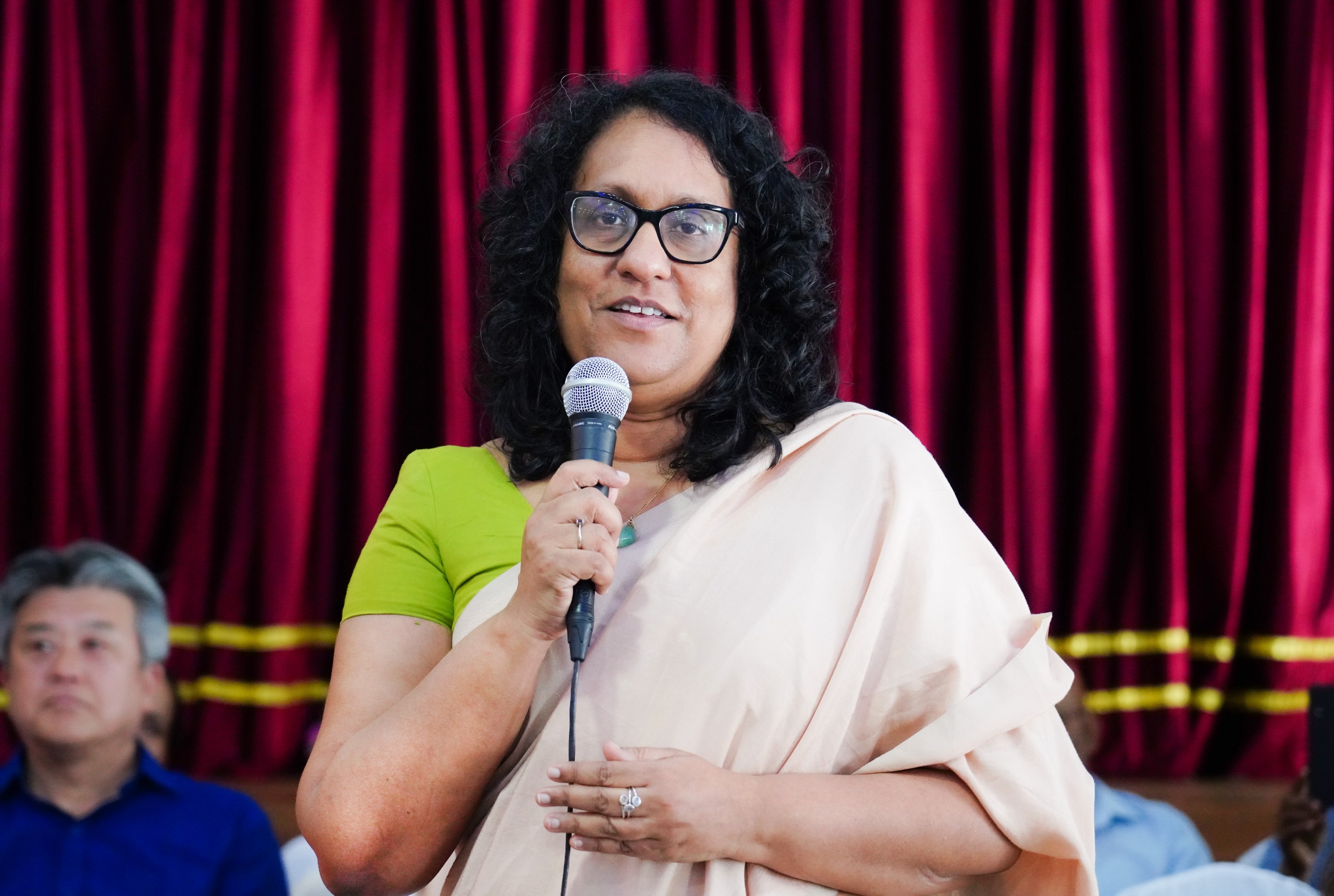
Prime Minister Dr. Harini Amarasuriya attended the special ceremony marking the 40th anniversary of the Sri Lanka Nippon Educational and Cultural Centre (SNECC), along with the 75th birthday of its Secretary General, the Chief Incumbent of Sri Mahindaramaya, Ethul Kotte, the Chief Sangha Nayake of the Western Province, and scholar Ven. Meegahathenna Chandrasiri Thero.
The primary objective of the event was to appreciate the service rendered by the Sri Lanka Nippon Educational and Cultural Centre, which has functioned as a bridge between Japan and Sri Lanka since 1986, contributing significantly to the development and welfare of children in Sri Lanka.
Addressing the gathering, the Prime Minister stated that the social service carried out by Ven. Meegahathenna Chandrasiri Thero through the Nippon Centre, aimed at fulfilling the educational aspirations of Sri Lankan children, is highly commendable. She further emphasized that the Centre’s contribution to nurturing skilled children into disciplined and responsible citizens, as well as strengthening cultural ties between the two countries, is appreciated by the Government.
Over the past four decades, thousands of students have benefited from the “Nippon Scholarship” programme implemented by the Centre. In addition to providing school supplies, monthly financial assistance, medical support, and spectacles, the programme offers Japanese language education and guidance for employment and training opportunities in Japan for Sri Lankan youth. Annual study tours to Japan and collaborative programmes organized to enhance mutual understanding between students of the two countries were also highlighted at the event.
Marking this special occasion, the Prime Minister extended her best wishes to Ven. Meegahathenna Chandrasiri Thero on his 75th birthday and wished him continued strength to successfully carry forward this invaluable service.
The event was attended by the Mayor of Kotte, Arosha Atapattu, representatives of sponsoring organizations from Japan, scholarship recipients, and other distinguished guests.
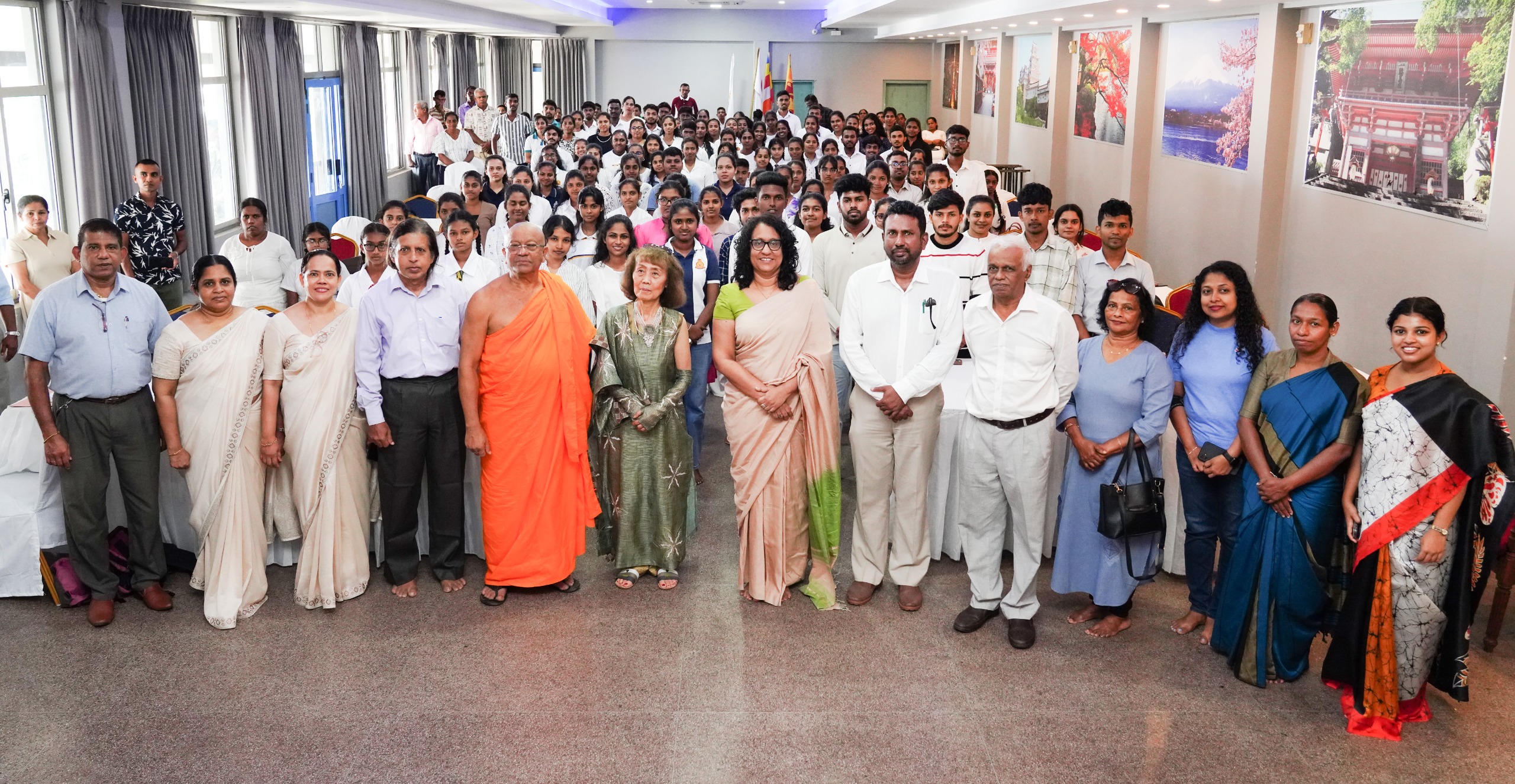
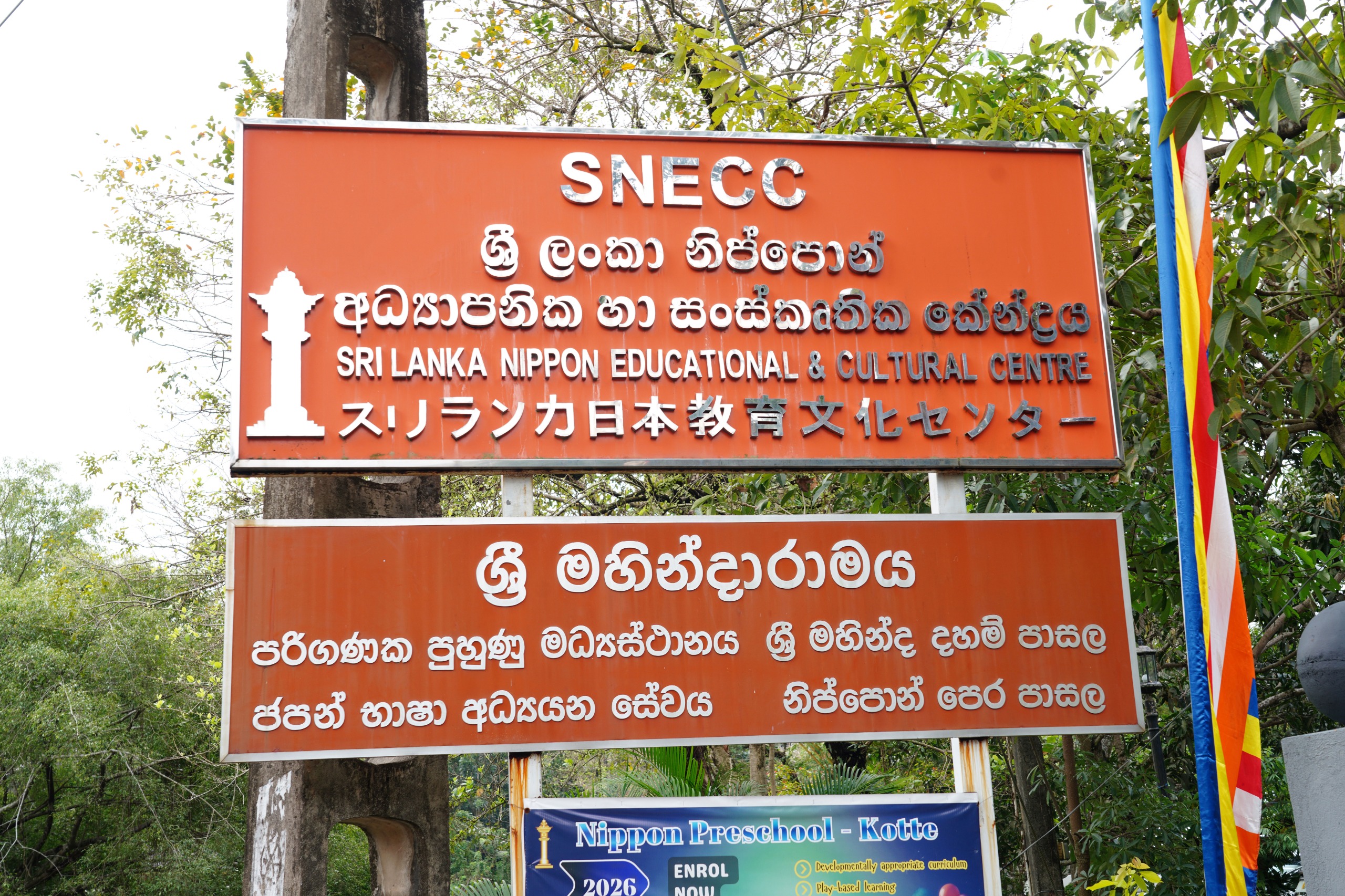
[Prime Minister’s Media Division]
Latest News
Navy’s latest addition P 628 sails for Colombo from Baltimore
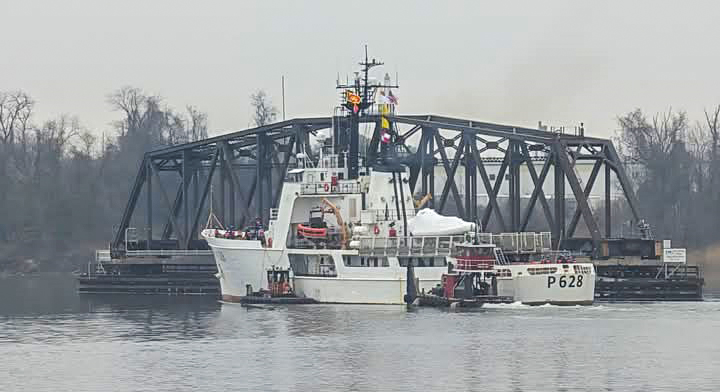
The Offshore Patrol Vessel P 628, which was formally handed over to the Sri Lanka Navy by the U.S. Coast Guard in December 2025, departed for Sri Lanka from Baltimore, United States on 20th February 2026. The home bound journey began, after the modernization work of the ship to suit the operational needs of the Sri Lanka Navy.
The EX-United States Coast Guard Cutter, USCGC Decisive was officially handed over to the Sri Lanka Navy on 02 Dec 25, as the latest addition to the SLN fleet under the Pennant Number P 628. Upon her arrival in Sri Lanka, the ship is scheduled to be formally commissioned into the fleet.
Measuring 64 metres in length, this ‘B-Type Reliance Class 210-foot Cutter’ is equipped with advanced technological systems and facilities, capable of conducting extensive surveillance operations spanning up to 6,000 nautical miles per patrol.
The vessel’s voyage to Colombo is historic, possibly marking the longest-ever passage undertaken by a Sri Lanka Navy ship. Covering approximately 14,775 nautical miles, the journey will see the P 628 navigate from Baltimore through the Atlantic Ocean, the Panama Canal (a first for a Sri Lankan naval vessel), the Pacific Ocean, and into the Indian Ocean via the Straits of Malacca. The ship is expected to arrive in Sri Lanka during the first week of May 2026.
During the transit, the P 628 is scheduled to make port calls to replenish supplies and services, providing opportunities to further strengthen diplomatic ties with partner nations.
This transfer represents the fourth vessel provided to the Sri Lanka Navy by the United States Coast Guard, reinforcing a long-standing partnership aimed at addressing common maritime challenges.
News
Commander of the Navy attends International Fleet Review
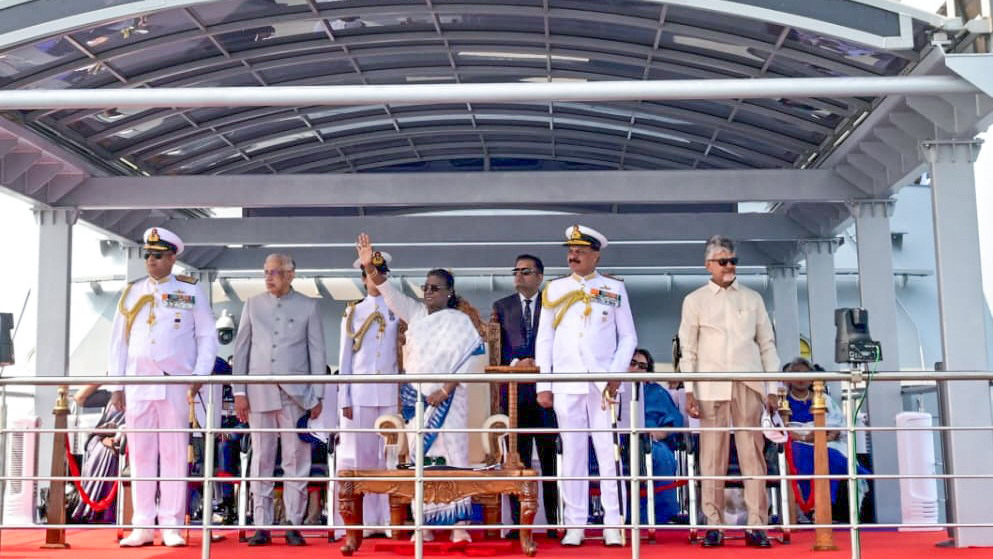
The 13th edition of the multilateral naval exercise MILAN hosted by the Indian Navy, is being held from 18 to 26 Feb 26, at Visakhapatnam and in the waters of the Bay of Bengal.
SLNS Sagara and Nandimithra represented the Sri Lanka Navy by participating in the International Fleet Review (IFR), a major component of this multilateral naval exercise, held on 18 Feb.
The event was attended by the Commander of the Sri Lanka Navy, Vice Admiral Kanchana Banagoda, at the invitation of the Chief of the Naval Staff of India, Admiral Dinesh K Tripathi. The President of India reviewed the IFR, participated by the warships representing regional and global navies.
Held under the theme “United Through Oceans and the spirit of Camaraderie Cohesion Collaboration,” IFR and MILAN-26 provide a vital platform for participating nations. The participation of the Sri Lanka Navy in the MILAN-26 multilateral naval exercise highlighted Sri Lanka’s commitment to advancing its maritime interests and addressing shared challenges through enhanced cooperation with other nations and institutions, grounded in mutual understanding.
Furthermore, participation in endeavours of this nature will strengthen mutual cooperation and interoperability with other maritime stakeholders. It will also provide the Sri Lanka Navy with valuable opportunities to gain new knowledge, strategic acumen, and operational experience, key elements in fostering a collective approach to maritime security.
During this visit, the Navy Commander engaged in bilateral discussions with regional and extra-regional diplomatic representatives and these strategic-level talks focused on matters of mutual interest pertaining to Sri Lanka’s maritime security and stability.
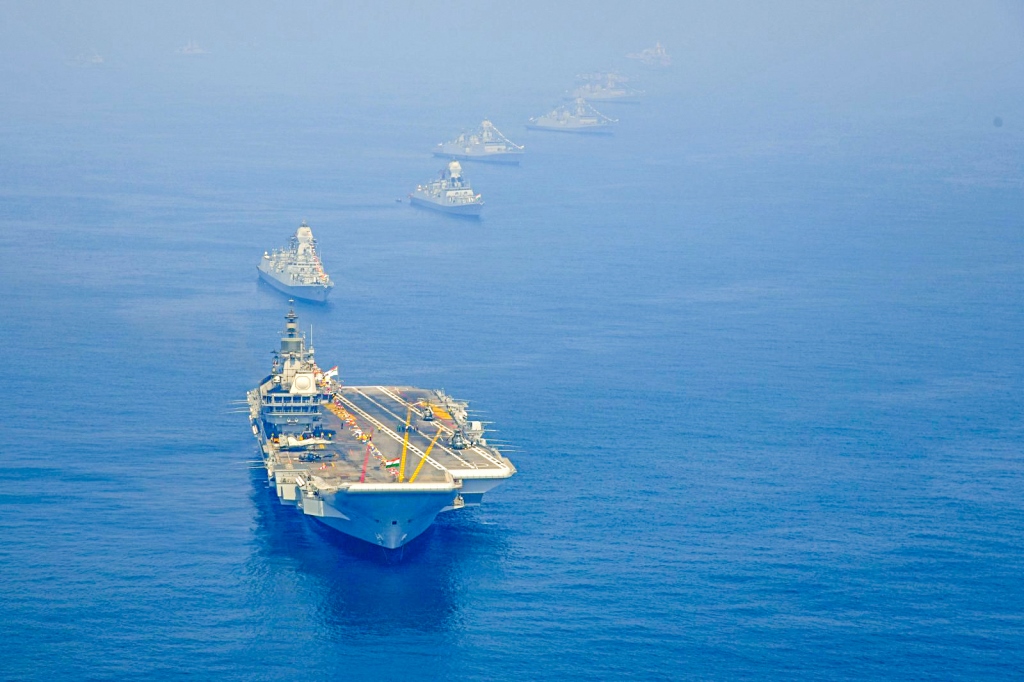
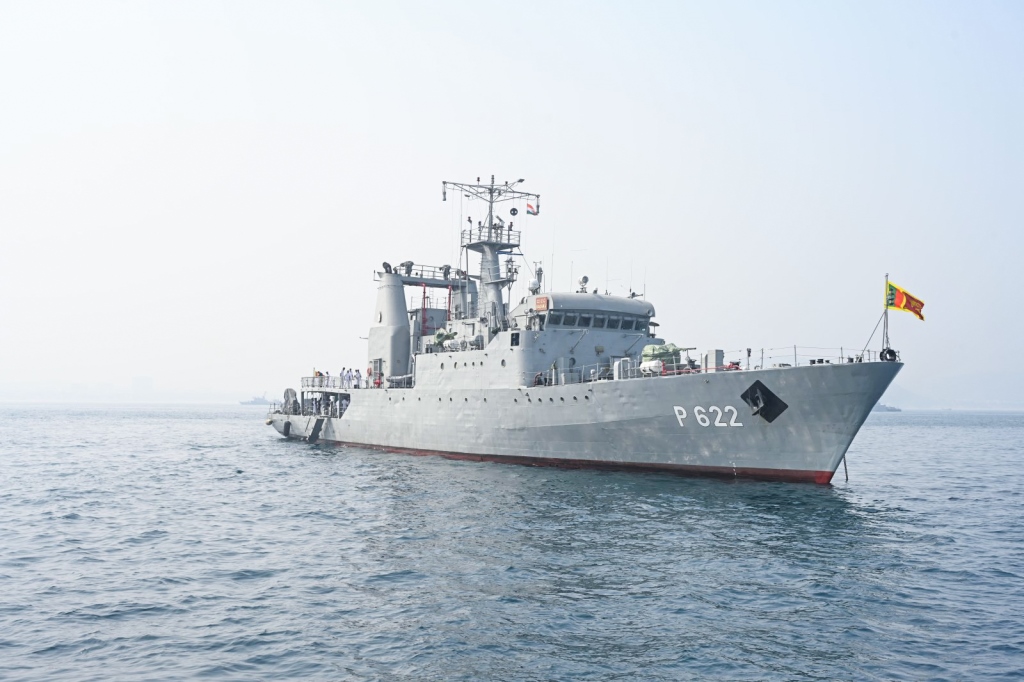
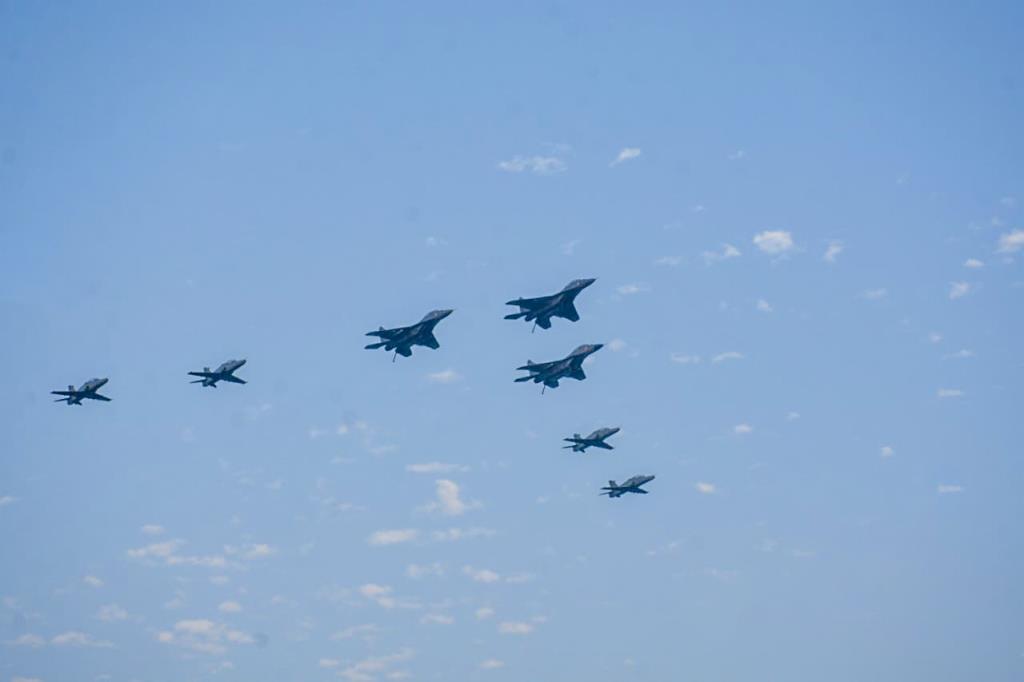
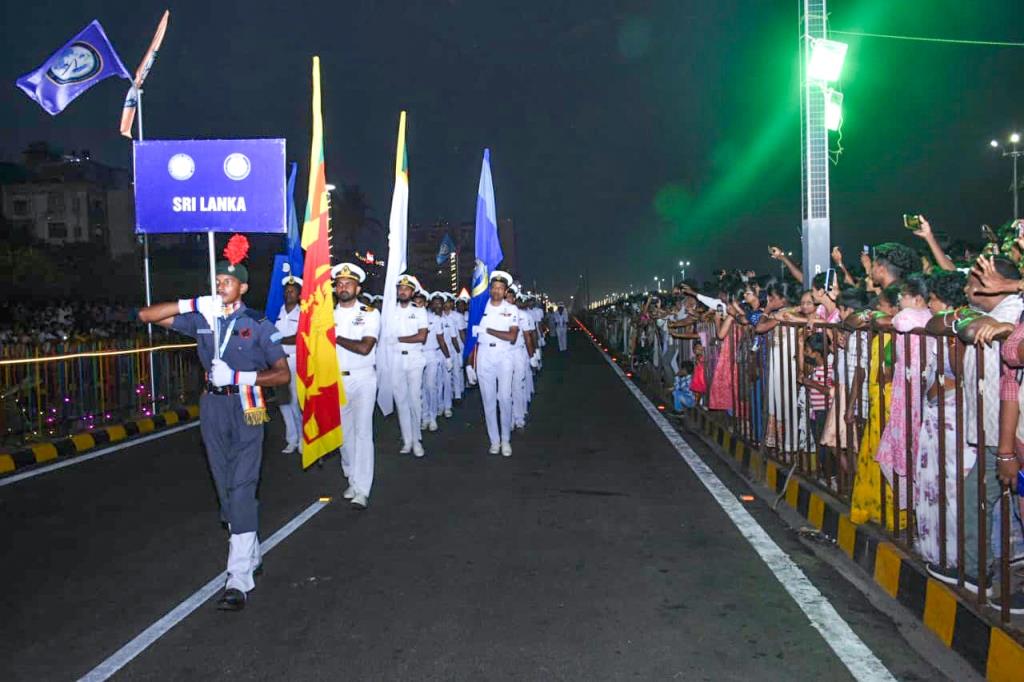
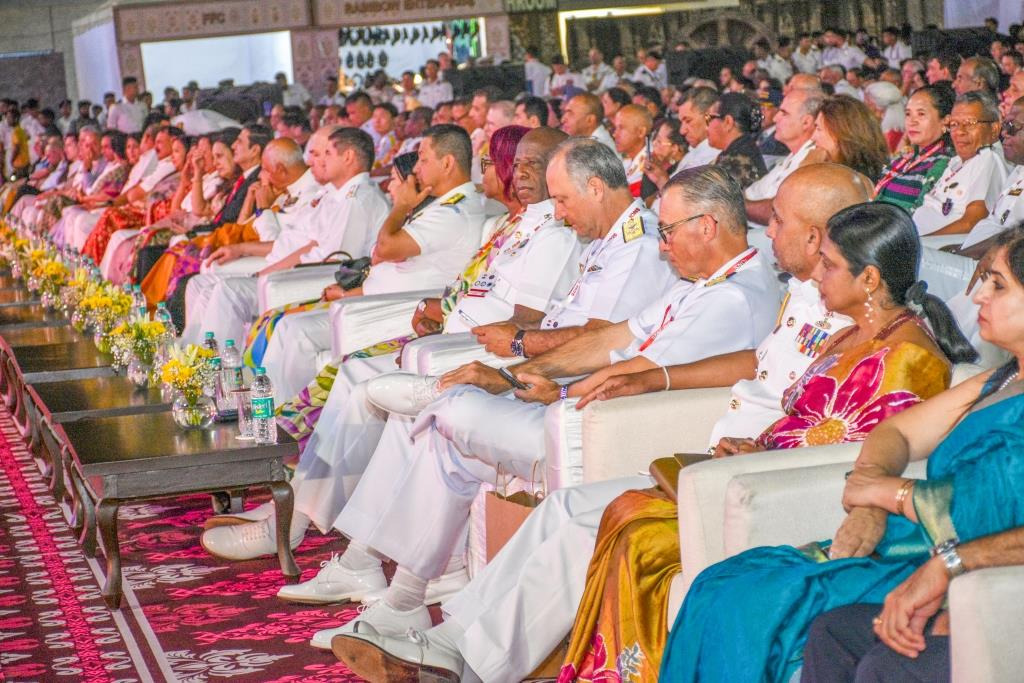
[Navy Media]
-

 Features2 days ago
Features2 days agoWhy does the state threaten Its people with yet another anti-terror law?
-

 Features2 days ago
Features2 days agoVictor Melder turns 90: Railwayman and bibliophile extraordinary
-

 Features2 days ago
Features2 days agoReconciliation, Mood of the Nation and the NPP Government
-

 Features2 days ago
Features2 days agoVictor, the Friend of the Foreign Press
-

 Latest News3 days ago
Latest News3 days agoNew Zealand meet familiar opponents Pakistan at spin-friendly Premadasa
-

 Features13 hours ago
Features13 hours agoLOVEABLE BUT LETHAL: When four-legged stars remind us of a silent killer
-

 Latest News3 days ago
Latest News3 days agoTariffs ruling is major blow to Trump’s second-term agenda
-

 Latest News3 days ago
Latest News3 days agoECB push back at Pakistan ‘shadow-ban’ reports ahead of Hundred auction













